Germany Had The Terrible
Prospects Of Defeat
|
1918 |
|
2.4 million Germans died during World War One, fought
mainly on French territory. Germany was unable to repay all of the debts
caused by war and had to borrow 70% from neighboring countries. |
| |
The price of bread in Berlin was 0.54 marks (The
cost of bread 6 years later) |
| October |
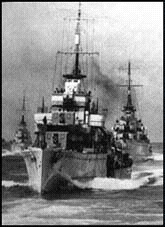
|
President offered armistice on one that condition that the
Kaiser had less power. He wanted a stronger parliament. The Kaiser
objected immediately and would not step down. Sailors at Kiel refused
orders to go and fight the British. This led to chaos Germany. |
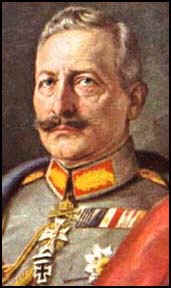
|
| November |
Mutineers seized control of ports |
| November |
The Kaiser fled to Holland never to return to Germany again |
|
Test yourself on the events
in 1918 |
Back To The Top Of
The Page
Back To The Top Of
The Page
|
1920 |
|
The Peace Treaty of Versailles Comes into force |
| March |
Wolfgang Kapp led the Freikorps in an attempt to take
Berlin to
take control of Berlin. The workers came out to strike, this brought the
city to a stand still
|
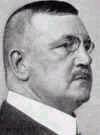
|
Test yourself on the events
in 1920 |
Back To The Top Of
The Page
|
1921 |
| Total reparations that Germany
has to pay is decided at 6,600 million |
| Government prints more money to
pay for the reparations |
|
Bread prices rise to 3.90 German marks. |
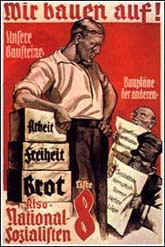
|
|
Test yourself on the events
in 1921 |
Back To The Top Of
The Page
Back To The Top Of
The Page
|
1923 |
|
The Government prints more money for wages |
|
Hyper Inflation. As prices rose saving became
worthless. In shops prices almost went up every hour. Sometimes workers
were paid twice a day so that they could buy there food before the prices
rose again
|
|
January |
The
price of bread rises to 250 marks |
|
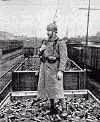
|
January |
French and Belgium troops enter the
Ruhr to take goods
because Germany had stopped paying her reparations. But the German workers
went in strike and would not cooperate with the French |
|
June |
A loaf of bread would cost a German family 3,465 marks. |
|

|
Stresemann calls off passive
resistance in the Ruhr, and the soldiers return home. This is because the
French soldiers killed innocent German people.
|
September |
| September |
The price of bread rises to 1,512,000 German marks |
| November |
New currency introduced in Germany called Rentenmark
|
 |
| November |
Adolf
Hitler, with help from army members. They tried to
seize Munich. Authority figures controlled the situation and the leaders
of the attack were arrested (some were shot). |
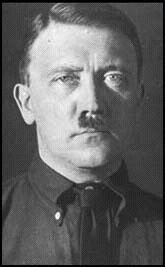
|
| November
|
The price of bread in Berlin costs
201,000,000,000.00
This caused hyper inflation, and this added to the problem that Germany
still had to pay the reparations and pay the workers on strike. |

|
| November |
1$ = 4,200,000,000 marks |

|
Test yourself on the events
in 1923 |
|
Germany Was In a Terrible
State |
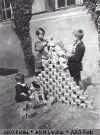
|

|
|
Children building with worthless piles of marks
|
A woman
lighting s fire with worthless marks |

To Test Out Your
Knowledge Of Everything on this Webpage
|